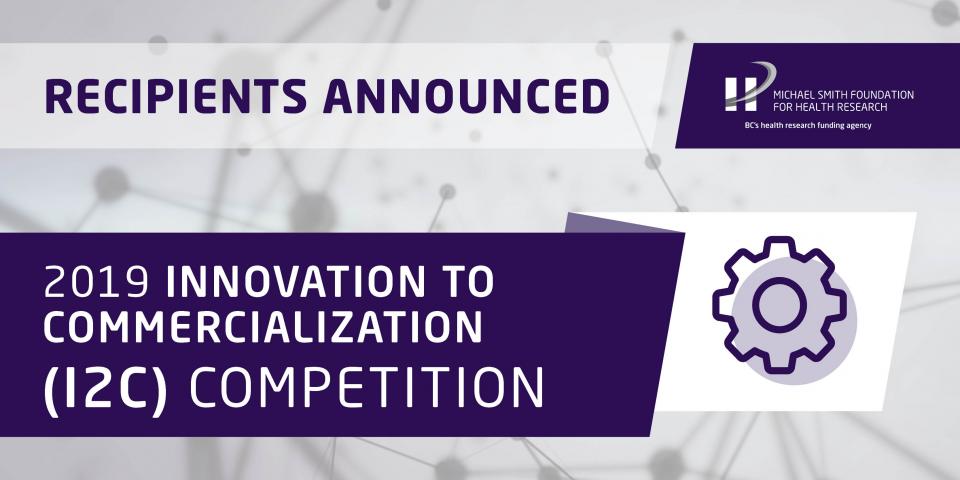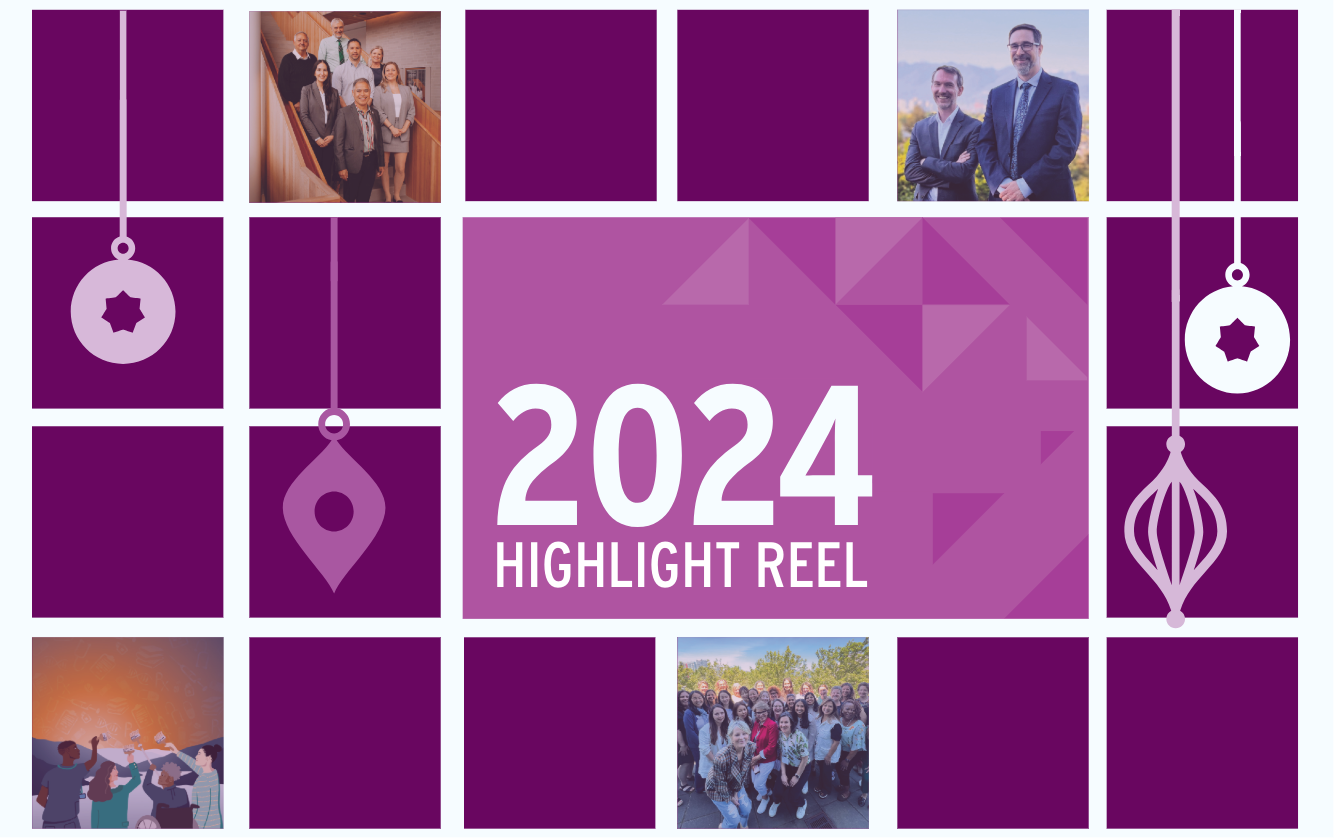MSFHR funds nine BC health researchers moving innovations towards practical application
17 September 2019

Nine BC health researchers have been funded in MSFHR’s third Innovation to Commercialization (I2C) competition. Each will receive funding to advance their medical treatments, diagnostic tools and assistive technologies towards practical application to improve health outcomes and enrich the health innovation ecosystem in BC.
Now in its third year, the I2C Program is designed to help BC health researchers advance their discoveries or inventions towards use in patient populations to improve health outcomes, benefit society, and enrich the health innovation ecosystem in BC. These researchers and their research programs help grow BC’s talent pool and contribute to a strong, sustainable knowledge economy.
The nine 2019 I2C award recipients, working in Kelowna, Victoria and Vancouver, are advancing health innovations that range from new nanomedicines for type 2 diabetes; developing a safe and effective analgesic for chronic pain relief, and a smart multifunctional wound dressing for continuous monitoring and treatment of chronic injuries.
Three of this year’s I2C award recipients are former MSFHR Scholars or Research Trainees, having received funding during the training and growth stages of their research careers that laid the groundwork for their current projects.
“At MSFHR, our suite of programs focus on talent development – including building researchers’ capacity to translate evidence into practice, policy and further research. As part of our learning and improvement cycle, we look for opportunities to enhance all our programs and ensure they are as effective and impactful as possible,” says Dr. Bev Holmes, MSFHR President & CEO. “For our I2C program, we introduced a partnership with Mitacs to give applicants the opportunity to access supplemental funding and we strengthened both the guidance offered to and review of the applicants’ commercialization plans.”
This year, two award recipients (Drs. Donald Sin and Stephanie Willerth) will receive Mitacs Accelerate funding to support and train graduate students and post-doctoral fellows. These students will split their time between their academic studies and the I2C projects, fostering collaboration between researchers, students and industry. Mitacs is a national, not-for-profit organization that has designed and delivered research and training programs in Canada since 1999.
MSFHR actively seeks co-funding partners to allow us to fund a greater number of BC researchers and provide an opportunity for partnering organizations to advance research in their areas of interest. This year, MSFHR is delighted to be partnering with the Pacific Parkinson’s Research Institute to co-fund Dr. Stephanie Willerth who is using bioprinting to produce living human tissues that can be used to screen potential drug candidates as an alternative to expensive pre-clinical animal models. This will lead to better health outcomes for patients suffering from neurological diseases and disorders.





